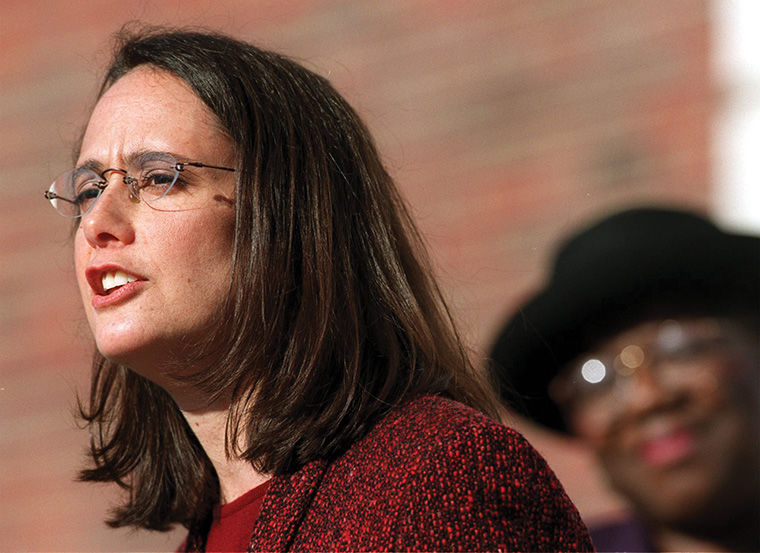Popular student loan lenders hit with state, federal lawsuits
Popular student loan lenders hit with state, federal lawsuits
January 30, 2017
Former college student and current business owner Shellie Wass said she took out federal and private loans from 2008 to 2010 from Sallie Mae to help pay tuition at The Art Institute of Philadelphia.
By the end of those two years, she owed $80,000 in student loans but now faces $120,000 in student loan debt despite never missing a payment.
According to Wass, Sallie Mae, which originates and collects private student loans, asked her to pay $800 a month about seven years ago. When Wass called the company to say she could not afford the payments, she said they belittled her instead of helping her.
“They told me it’s ridiculous that somebody of my age is not able to pay that kind of money to their student loans,” Wass said. “[They] told me I should start eating less so my food budget is less and I can give them more [money].”
Sallie Mae and Navient, a spin-off that handles federal student loans, are now defending lawsuits from Illinois Attorney General Lisa Madigan and other government agencies accusing them of “unfair” and “deceptive” subprime loans—loans determined to be at poor risk—according to a Jan. 18 press release from Madigan’s office.
“The Navient lawsuit is the culmination of a long, wide-ranging investigation by our office that uncovered rampant student loan abuses,” said Madigan’s press secretary Eileen Boyce in a Jan. 24 emailed statement.
Madigan is seeking relief for students who have been affected by misconduct by the companies and encouraged students to call their student loan hotline if they have had issues, she added.
The Consumer Financial Protection Bureau, a federal agency also suing the lending groups, accused Navient of “systematically and illegally failing borrowers at every stage of repayment,” according to a Jan. 18 press release from the CFPB. The Washington State Attorney General Bob Ferguson also filed a lawsuit against Navient the same day.
“My investigation found Sallie Mae put student borrowers into expensive subprime loans that it knew were going to fail,” Madigan said in the press release. “Navient’s actions have led to student borrowers needlessly carrying billions of dollars in debt and the company must be held accountable.”
Madigan said Sallie Mae began “peddling risky and expensive ‘designed to fail’ subprime loans” while Navient “improperly” allocated students’ monthly payments, while also “failing to properly perform many of its other core servicing functions” in a Jan. 18 press release.
In a statement released the same day in response to Madigan’s lawsuit, Navient said the claims alleged by Madigan and the CFPB are “unfounded.”
However, Heather Jarvis, a North Carolina-based attorney specializing in student loans, said she receives daily complaints about problems with student loan servicing companies and added that it is difficult for borrowers with complicated circumstances to get complete information.
“Those who have to borrow to pay for education should look first to federal student loans before considering private loans,” Jarvis said. “[Students] should be aware that they need to educate themselves about the loan program and not rely entirely on the servicing company to get it right.”
Fawziah Qadir, a first year doctoral student at New York University, said she took out private loans from Sallie Mae to help pay for her undergraduate education at Fairleigh Dickinson University in Madison, New Jersey, assuming her repayment schedule would be income-based.
Once she was out of school in 2013 and trying to make repayments, Qadir said Sallie Mae was notoriously difficult, and she faced “exorbitant” interest rates and monthly payments that were not possible.
Even with a full-time employment at the time, Qadir said she faced repayments that were about $1,500 a month, and Sallie Mae was never willing to negotiate on the income-based repayment.
“I had to go through the [CFPB] just to get Sallie Mae’s attention to actually lower my amount,” Qadir said.
She advises students who are dealing with a lender like Sallie Mae for the first time to keep “pushing and pushing” to fight against possible unethical behavior.
Jarvis said she wants to see more oversight and accountability from student lending companies and more support from students for the organizations who want to help them.
“It’s important students and families who care about affordable education support the continued strength of consumer watchdog organizations like the CFPB,” Jarvis said.








